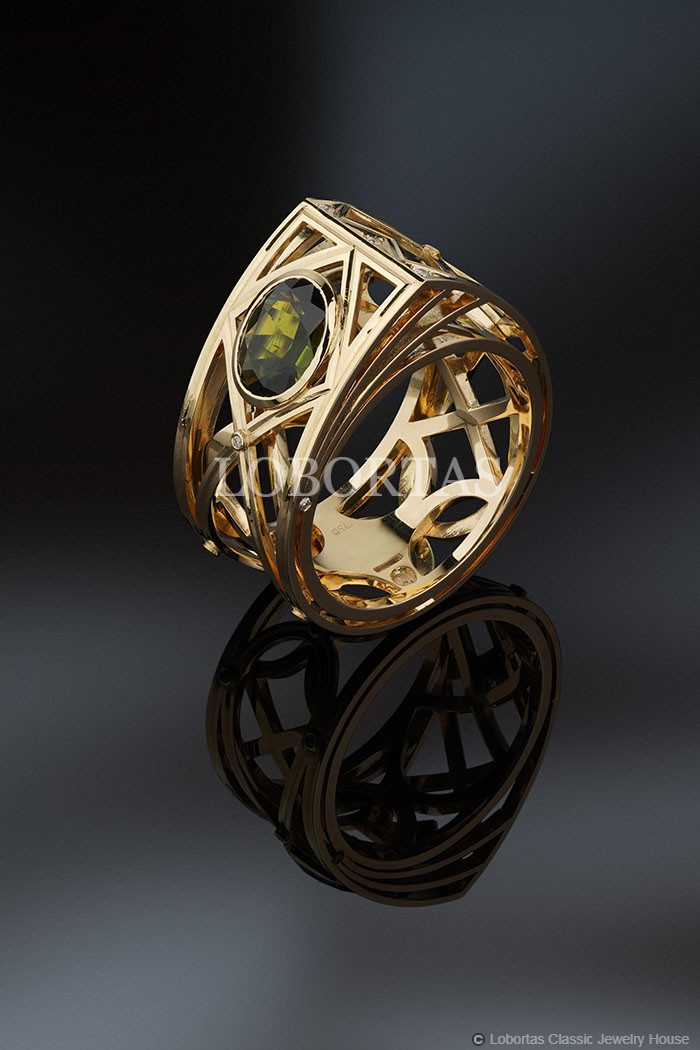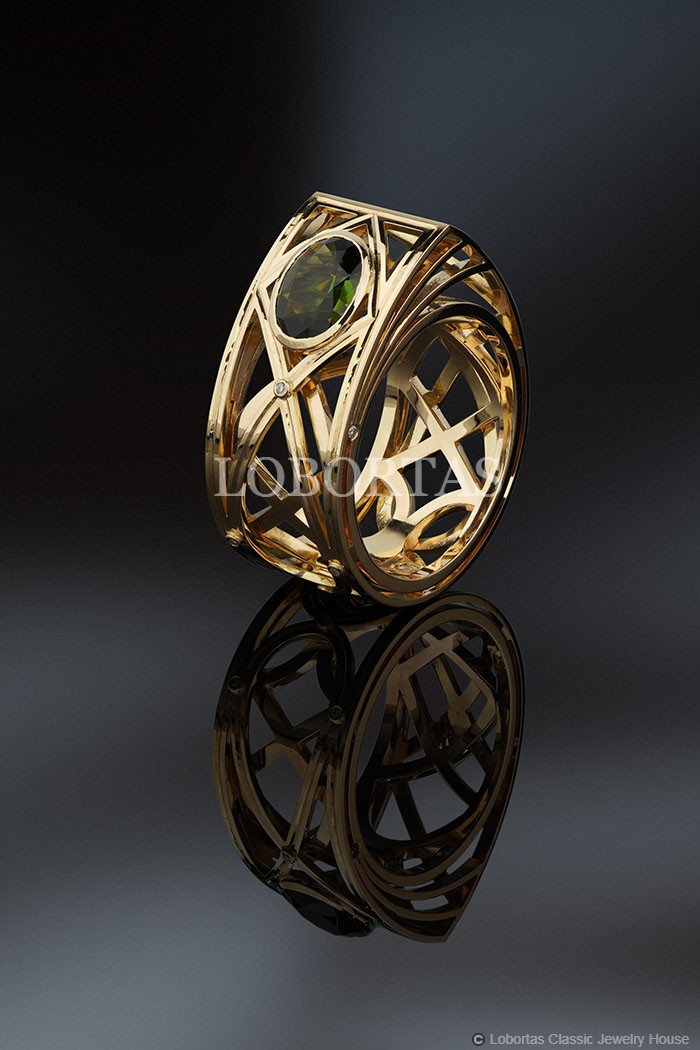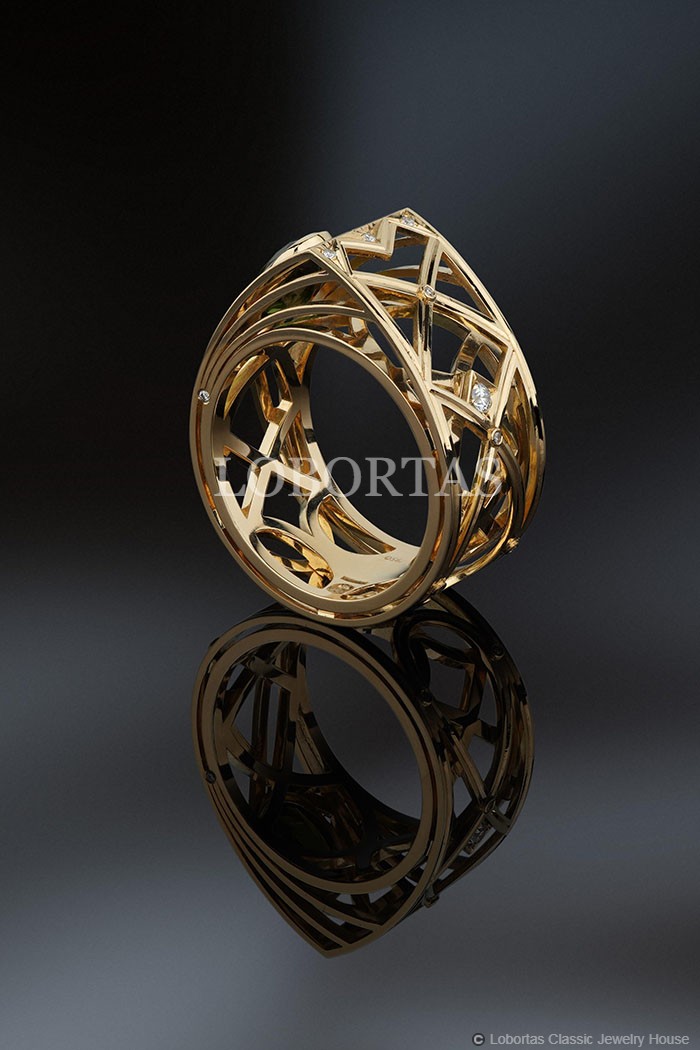«Le Pater»
Diamond Tourmaline Gold Ring
Collection: Lux Class
Materials:
gold, diamonds, tourmaline.
№ Н-20-03-115
Alphonse Mucha, a prominent figure in the Art Nouveau movement, has left a lasting imprint on the art world with his harmonic compositions and meticulous details. His groundbreaking creation, ‘Le Pater. Le Grand ŒUvre d’Alphonse Mucha’, attests to Mucha’s unique ability to seamlessly blend symbolism, spirituality, and aesthetics into a unified masterpiece. This artistic marvel, in which Alphonse Mucha has artistically interpreted every line of the Lord’s Prayer, conveys profound themes of devotion and introspection, charting the spiritual ascent of humanity towards the apex of divine ideal. It stands as an eternal masterpiece, a beacon for future generations, illuminating the path of human advancement and potential.
In the creation of “Le Pater”, the jewellers from the esteemed House of Lobortas have served as conduits for Mucha’s artistic vision, transcending the boundaries of two-dimensional art to capture the essence of the “Great Treasure of Alphonse Mucha”, transforming his visionary work into a tangible and radiant form.
Crafted from noble gold, this piece of jewellery radiates a divine glow, encapsulating the ethereal concepts of Mucha. The intricate geometric design of the jewel, echoing the stylized shapes of Le Pater, demonstrates a meticulous attention to detail and a respectful homage to the original.
The diamond inclusions serve a dual purpose – they symbolize purity and bathe the intricate design in unparalleled brilliance. Just as Mucha intentionally incorporated symbolic elements into his works, the diamonds in Le Pater contribute to the narrative of the piece.
At the core of this jewellery piece lies a dark green tourmaline, the precious gem adding an aura of mystery and depth to the composition. The selection of tourmaline, with its lush green hue, resonates with Mucha’s penchant for incorporating elements inspired by nature in his works. The dark green tourmaline, with the richness of its shades, becomes a focal point that invites the observer on a contemplative journey, mirroring the spiritual undertones present in Mucha’s “Great Work”.
Photo by Dmitriy Las



